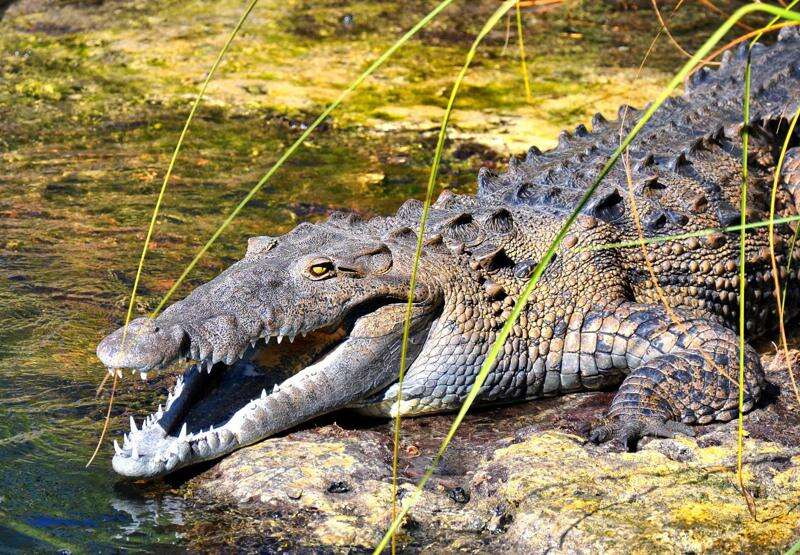KINGSTON, Jamaica — The National Environment and Planning Agency (NEPA) has issued a stern condemnation following the discovery of a mutilated American crocodile (Crocodylus acutus) near the Hellshire Bridge in St Catherine on October 1. The animal was found with its tail severed and a rope tied around its mouth, suggesting it had been illegally captured before being killed. This incident occurred just days after a similar case was reported near Spanish Town Road, raising concerns about a disturbing trend of cruelty toward this protected species.
Under the Wild Life Protection Act (WLPA), it is illegal to kill, capture, or harm crocodiles, with penalties including fines of up to $3 million or three years’ imprisonment. Leighton Mamdeen, an Environmental Officer in NEPA’s Fauna Unit, emphasized the ecological importance of crocodiles and dispelled myths about the supposed health benefits of consuming their meat.
‘We continue to hear troubling reports of people consuming crocodile meat for alleged health benefits, including claims that the tail acts as an aphrodisiac. There is no scientific evidence to support this; it is simply false,’ Mamdeen stated. ‘Crocodiles are not food; they are vital to our ecosystems. They regulate populations of other species and help keep our waterways clean by removing dead animals that could spread disease.’
Mamdeen also highlighted pollution as a growing threat to crocodiles, noting that necropsies have revealed plastics, cans, diapers, and even clothing inside dead animals. NEPA has launched a comprehensive investigation into the Hellshire incident and is collaborating with law enforcement to identify and prosecute those responsible.
The agency is urging the public to report any incidents of harassment, capture, or killing of crocodiles by contacting NEPA at 876-754-7540, toll-free at 888-991-5005, or emailing pubed@nepa.gov.jm. Reports can also be made to 119 or the nearest police station. NEPA is calling on Jamaicans to help safeguard the nation’s wildlife by discouraging acts of cruelty against protected species.
